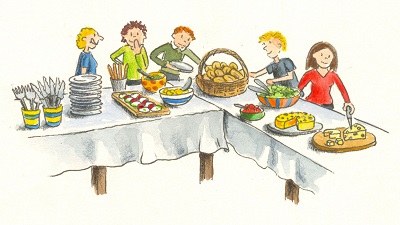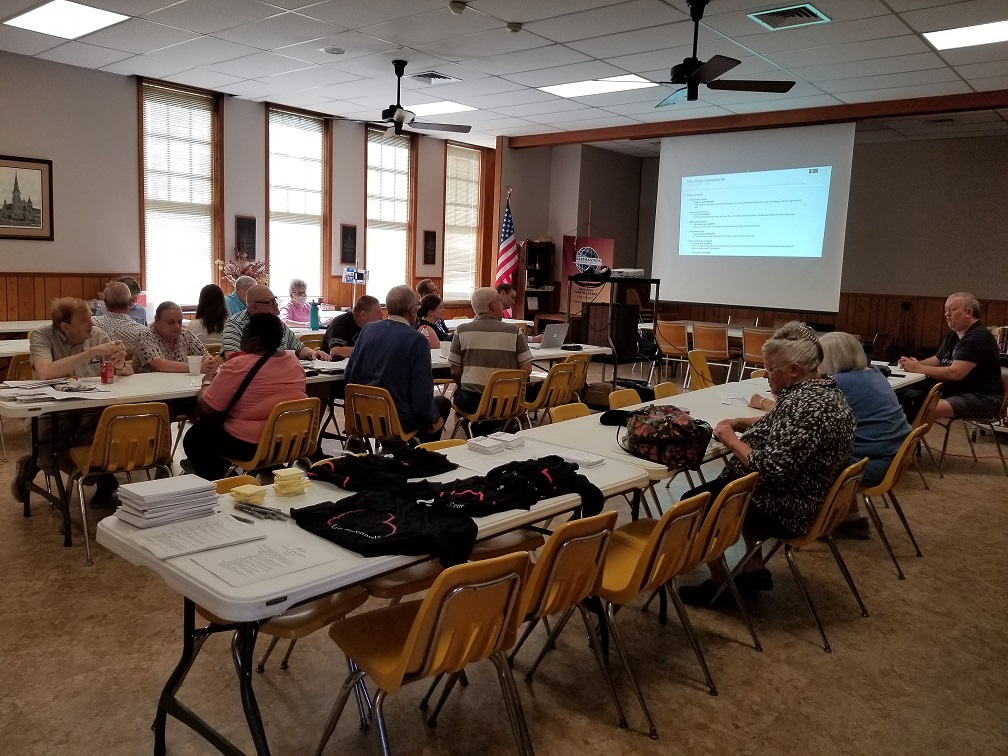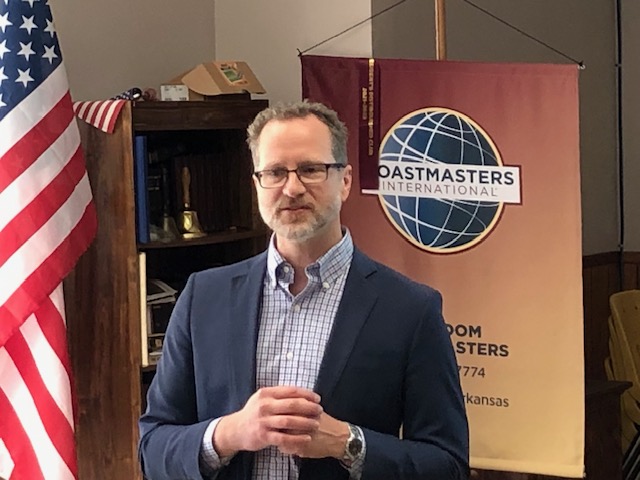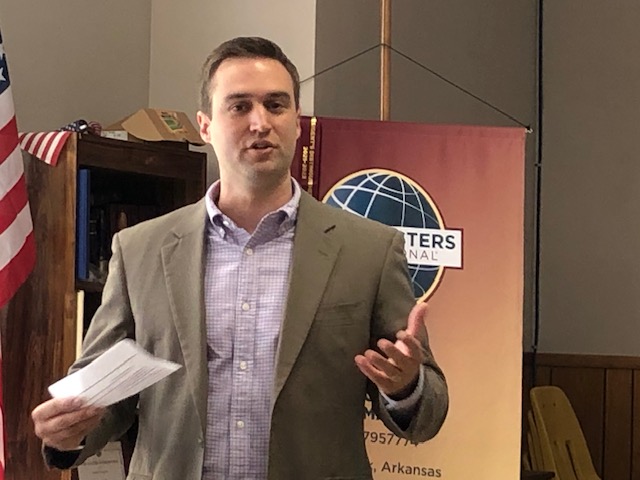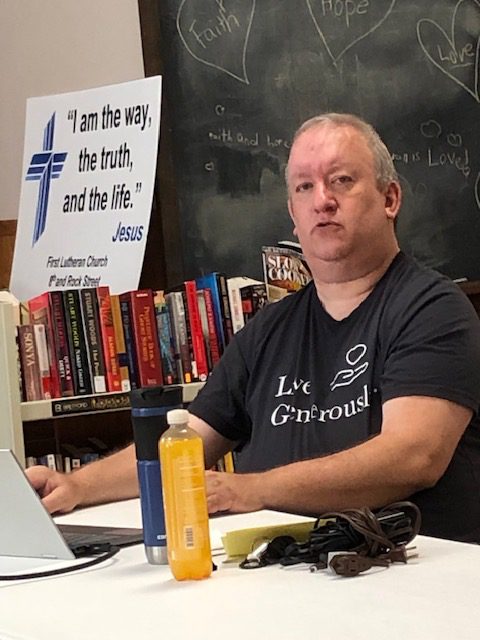Text: Acts 17:16–31
Theme: Identity: God’s and yours
Other Lessons: Psalm 66:8–20; 1 Peter 3:13–22; John 14:15–21
A. In the Name of the Father…Amen.
B. The reading from Acts 17 serves as our sermon text for this morning.
C. Grace, mercy, and peace be yours from God our heavenly Father through
our Lord and Savior Jesus Christ. Amen.
D. Dear brothers and sisters in Christ, let us pray:
LSB 594:1 God’s Own Child, I Gladly Say It
God’s own child, I gladly say it:
I am baptized into Christ!
He, because I could not pay it,
Gave my full redemption price.
Do I need earth’s treasures many?
I have one worth more than any
That brought me salvation free
Lasting to eternity!
Text: © 1991 Robert E. Voelker. Used by permission: LSB Hymn License no.
110000247
Introduction
A. Where is your identity found?
1. Try asking that question at your next family get together!
2. Is your identity, that is, who you are, a product of what you decide and
do, or is it what you receive from God?
3. To put it another way, is who you are a self-construction, or are you
instead a creation of someone else, namely, God?
B. There seems to be much confusion about this in our world today.
1. A few years ago, in a paper for The Minnesota Review, culture and
gender-studies researcher Whitney Stark argued that physics based on the
laws of Newton is so oppressive because it divides the observed world (that
is, what we can see, hear, smell, taste, and touch) into binary categories,
such as particles versus waves and space versus time—structures that she
believes are arbitrary and lead to oppressive categories in other aspects
of life.
2. She contends, for example, that positive and negative charges observed
in nature encourage people to think in terms of male and female.
3. She believes that conclusions drawn from nature should be suppressed in
the name of social causes.
4. She maintains that individuals should construct for themselves who they
are (Whitney Stark, “Assembled Bodies: Reconfiguring Quantum Identities,”
The Minnesota Review 88 [2017]: 69–82).
5. She is not alone in this line of thinking.
6. This has become part of mainstream thought in our culture today.
a. This is central to what is known as “wokeism” and the cancel culture.
b. If your sole purpose is to see something as offensive, racist, bigoted,
or close minded, you will certainly not have any trouble finding it!
c. If you refuse to buy into the lies that are being sold, then you will be
labeled as:
1. Offensive
2. Racist
3. Bigoted
4. Close minded
5. And you are at risk of being “cancelled.”
C. This type of thinking, however, is disconnected from reality.
1. The fact is that human social and moral life are not arbitrary or
human-made constructions;
2. rather, they are connected to nature:
a. that is, to reality, and ultimately to the reality of God.
3. As the apostle Paul reminds us today:
a. Acts 17:25 (NASB95)
25nor is [God] served by human hands, as though He needed anything, since
He Himself gives to all people life and breath and all things;
4. Paul goes on to say that we know who God is because we see Jesus Christ:
a. Acts 17:31 (NASB95)
31because He has fixed a day in which He will judge the world in
righteousness through a Man whom He has appointed, having furnished proof
to all men by raising Him from the dead.”
b. That is to say, first, the identity of God is made known in and through
Jesus Christ and, second,
c. Acts 17:28 (NASB95)
for in Him we live and move and exist, as even some of your own poets have
said, ‘For we also are His children.’
d. In other words, God’s Identity Is Revealed to us and Our Identity Is in
Jesus Christ.
1. Knowing who God is necessary for us to know who we are.
A. Acts 17:22–23 (NASB95)
22So Paul stood in the midst of the Areopagus and said, “Men of Athens, I
observe that you are very religious in all respects.
23“For while I was passing through and examining the objects of your
worship, I also found an altar with this inscription, ‘TO AN UNKNOWN GOD.’
Therefore what you worship in ignorance, this I proclaim to you.
1. God, to the philosophers of the Areopagus:
a. was a product of human imagination,
b. someone we or others construct for ourselves.
2. This is a form of identity theft, and this is a real problem in our
world today.
a. Someone other than yourself and for nefarious reasons:
1. Gets a credit card in your name.
2. Takes a loan out to get a car in your name.
3. Tries to sell your house without you knowing it in your name.
3. If we don’t know who God is, or if we seek to claim his identity for
ourselves:
a. we will never know who we are,
b. and we will never truly live as God created and redeemed us to live.
4. Paul states very simply:
Acts 17:29 (NASB95)
“Being then the children of God, we ought not to think that the Divine
Nature is like gold or silver or stone, an image formed by the art and
thought of man.
5. If God is only a product of our imagination, it makes us God, and
therefore our own Creator.
a. But then to whom could we turn for help that’s bigger than ourselves?
6. We often do make God a figment of our imagination:
a. imagining he’ll answer prayers as we want,
b. tolerate sins we hold dear,
c. side with us in politics
d. or help us win personal squabbles.
7. But that isn’t the real God;
a. the real God would remain unknown to us.
b. So where would we be?
c. Would we even care?
2. In Christ, we do know who God is and who we are.
A. Unlike the ancient Greeks, we do know who God is.
1. The Athenians scoffed at the idea of the resurrection since they didn’t
believe flesh was worth raising
a. Acts 17:32 (NASB95)
32Now when they heard of the resurrection of the dead, some began to sneer,
but others said, “We shall hear you again concerning this.”
2. The Greeks pictured their gods:
a. as appearing like humans, but never being humans, that is, flesh and
blood.
3. We know our God because he did become human:
a. flesh and blood that was not strange to him, but precious,
b. worth being the sacrifice on the cross for the sins of the whole world.
4. And when we see the man, Jesus Christ (verse 31), in the flesh, we see
God fully.
a. Jesus says in our Gospel reading for this morning:
1. John 14:20 (NASB95)
“In that day you will know that I am in My Father, and you in Me, and I in
you.
B. Knowing God, then, we do know who we are.
1. We who are flesh like Christ are thus made in his image:
Acts 17:26 (NASB95)
and [God] made from one man every nation of mankind to live on all the face
of the earth, having determined their appointed times and the boundaries of
their habitation,
2. We, as Christ’s brothers and sisters, are God’s children, as Jesus is
his Son:
a. Again John 14:20 (NASB95)
“In that day you will know that I am in My Father, and you in Me, and I in
you.
b. God has called you by name to be his child in and through Holy Baptism.
c. Our Epistle lesson for today declares:
1 Peter 3:21 (NASB95)
Corresponding to that, baptism now saves you—not the removal of dirt from
the flesh, but an appeal to God for a good conscience—through the
resurrection of Jesus Christ,
3. We, therefore, have the purpose of being Christ to the world, not a
purpose of our own imagining.
A. John 14:21 (NASB95)
“He who has My commandments and keeps them is the one who loves Me; and he
who loves Me will be loved by My Father, and I will love him and will
disclose Myself to him.”
1. Witnessing to others (martyria)
a. Before God
b. To the world
2. Showing mercy (diakonia)
a. Regarded by God as dearly loved
b. Sharing that mercy with others.
3. In this Life together (koinonia)
a. This is our confession (who we are)
b. This is our witness (what the Lord wants others to be)
4. We are in Christ and will live forever:
A. John 14:19 (NASB95)
“After a little while the world will no longer see Me, but you will see Me;
because I live, you will live also.
Illustration
A. A pall, put on a casket at a funeral, is a reminder that in Holy Baptism
we are clothed with Christ.
1. It is like a bookend to the baptismal garment an infant wears when
baptized into Christ.
2. Both are reminders that in Baptism we are clothed with Christ.
3. We are clothed with his forgiveness, his righteousness, and his life
that conquers death.
B. Often there are symbols on a pall.
1. I’d like you to picture in your minds a pall with a red cross encircled
in gold.
2. This reminds us that the glory of God is seen in Jesus shedding his
blood and dying for us on a cross.
3. Such is his love for us.
4. Somewhat to the side of the cross is a pitcher with streams of water and
blood flowing out of it.
a. This calls to mind the living water of Christ’s love for us that flows
from the font into our hearts and lives and the blood of his life, which we
drink from the chalice.
5. Below all of this are still waters (Psalm 23) that remind us that in
Christ we have a “peace that surpasses all understanding.”
6. Finally, blooming out of the still waters is an Easter lily that in the
cold of winter is dead but with the warmth of the sun blooms anew.
7. In Christ, the Sun of Righteousness, we bloom anew in the glory of God,
never to die again.
8. We have a new identity in Christ:
A. Acts 17:28 (NASB95)
for in Him we live and move and exist, as even some of your own poets have
said, ‘For we also are His children.’
Conclusion
A. God said:
Genesis 1:26–27 (NASB95)
“Let Us make man in Our image, according to Our likeness; and let them rule
over the fish of the sea and over the birds of the sky and over the cattle
and over all the earth, and over every creeping thing that creeps on the
earth.”
27God created man in His own image, in the image of God He created him;
male and female He created them.
1. Isn’t that interesting? Quantum physics confesses the reality of what
God has created.
2. Our Lord has made you and redeemed you by his name and Word to be who
you are, and it is good.
3. There is no one else like you.
4. To top it off, God loves you for who you are, who He created and
redeemed you to be.
5. You are important to him, and He will be with you forever in Christ.
Amen.
B. Let us pray:
LSB 725:2 Children of the Heavenly Father
God His own doth tend and nourish;
In His holy courts they flourish.
From all evil things He spares them;
In His mighty arms He bears them.
Text: Public domain
C. The peace of God, which surpasses all understanding, guard your hearts
and minds in Christ Jesus. Amen.
D. In the Name of the Father…Amen.

